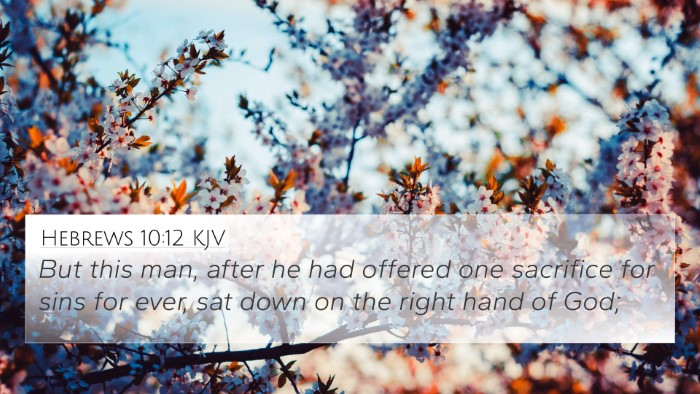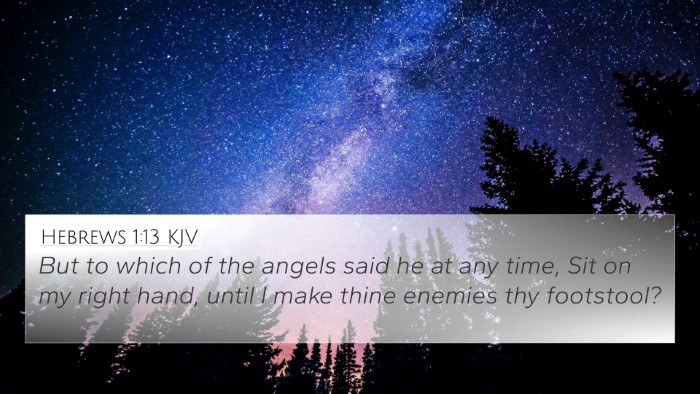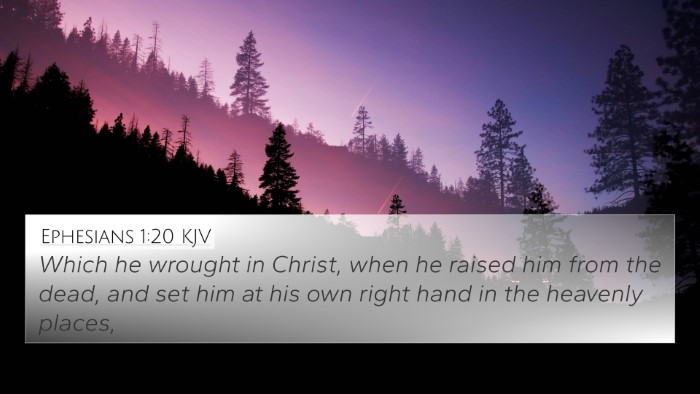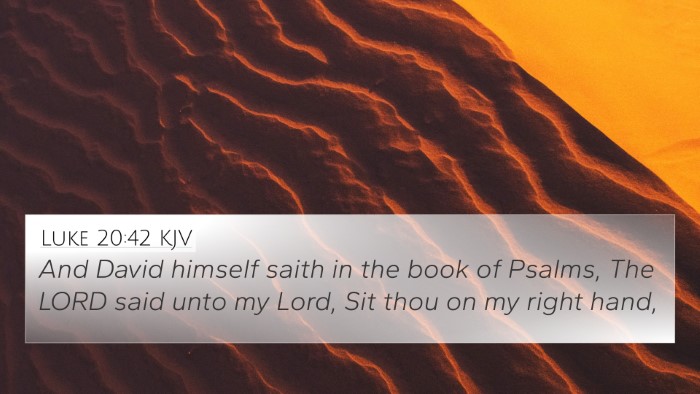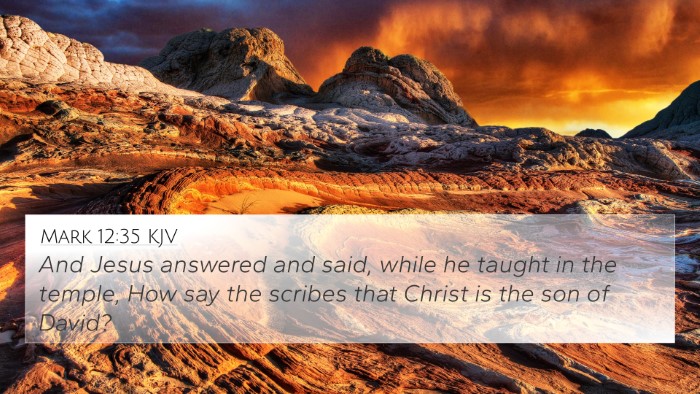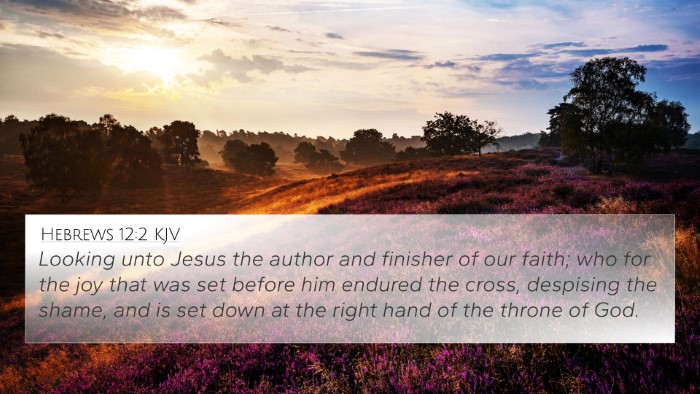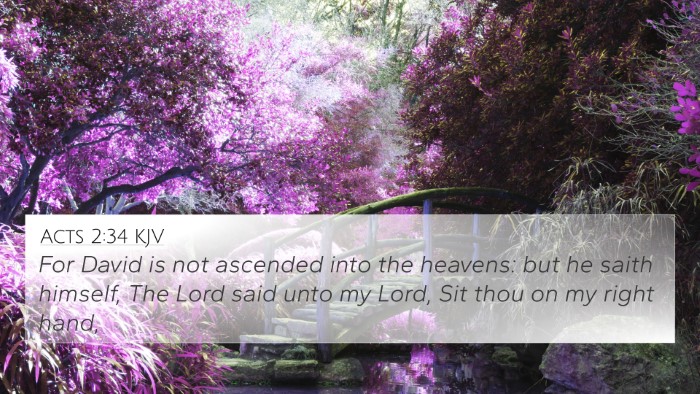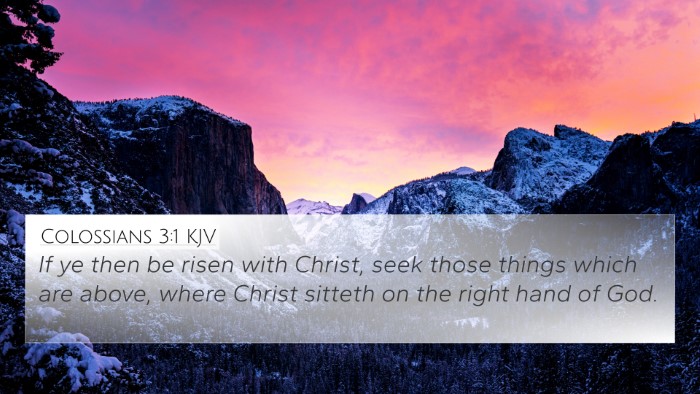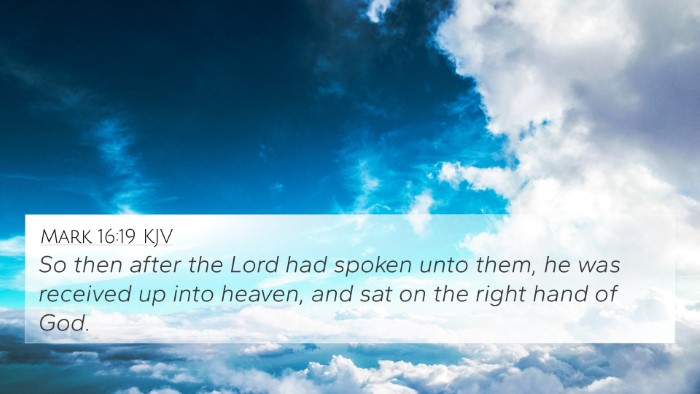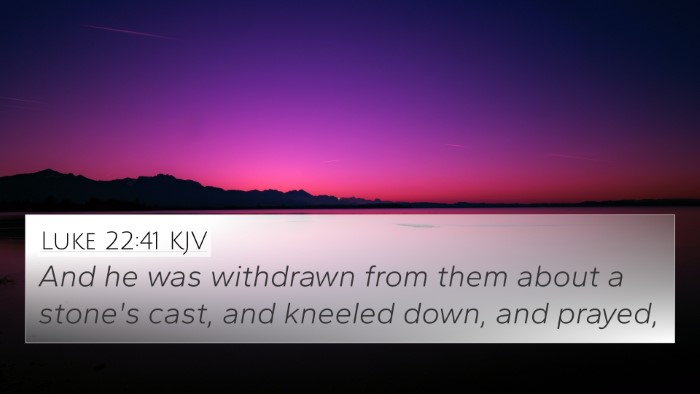Understanding Psalms 110:1
Bible Verse: Psalms 110:1
Psalms 110:1 states: "The LORD said unto my Lord, Sit thou at my right hand, until I make thine enemies thy footstool."
This verse is a profound declaration about the Messiah and establishes a complex relationship between God the Father and the Messiah, a theme explored in many public domain commentaries.
Key Themes and Insights
- The Authority of the Messiah: This verse presents the Messiah as one who is granted authority by God, emphasizing His exaltation and role.
- The Right Hand Position: The phrase "Sit thou at my right hand" signifies a place of honor and power, illustrating the divine approval of the Messiah.
- Victory Over Enemies: The mention of making enemies a footstool indicates the ultimate victory that the Messiah would achieve over opposition.
- Divine Communication: The phrase "The LORD said unto my Lord" highlights an inter-Trinitarian dialogue, revealing the relationship within the Godhead.
- Fulfillment in the New Testament: The verse is frequently referenced in New Testament scriptures, showing its prophetic significance regarding Jesus Christ.
Commentary Insights
Matthew Henry: Matthew Henry emphasizes that this verse speaks of the eternal kingdom of the Messiah. He notes that the Lord commands respect and reverence towards the Messiah, highlighting His divine authority.
Albert Barnes: Albert Barnes points out that this verse prophesies Christ’s ascension and His sitting at the right hand of the Father, a theme repeated throughout the New Testament, connecting it with the concept of Christ’s reign and victory.
Adam Clarke: Adam Clarke elaborates on the significance of being seated at the right hand. He explains that this position denotes not only honor but also dominion over all creation, reaffirming the Messiah's role as sovereign.
Bible Verse Cross-References
This verse has several cross-references that help to illustrate its meaning and context:
- Matthew 22:44: "The Lord said to my Lord, Sit at my right hand, until I put your enemies under your feet." This reinforces the prophetic nature of Psalms 110:1 in relation to Jesus’ resurrection and ascension.
- Acts 2:34-35: "For David did not ascend to heaven, but he himself says, 'The Lord said to my Lord, Sit at my right hand...'" This passage confirms the divine authority of Christ.
- Hebrews 1:3: "He is the radiance of the glory of God and the exact imprint of his nature, and he upholds the universe by the word of his power. After making purification for sins, he sat down at the right hand of the Majesty on high." This highlights the completion of Jesus' earthly mission and His exaltation.
- Hebrews 10:12: "But when Christ had offered for all time a single sacrifice for sins, he sat down at the right hand of God..." This reflects Christ’s ultimate sacrifice leading to His position of authority.
- Luke 20:42-43: "For David himself says in the Book of Psalms, 'The Lord said to my Lord, Sit at my right hand...'" Here, Jesus uses this verse to assert His identity and authority.
- 1 Corinthians 15:25: "For he must reign until he has put all his enemies under his feet." This shows the eventual subjugation of all enemies, fulfilling the promise made in Psalms 110:1.
- Ephesians 1:20-22: "That he worked in Christ when he raised him from the dead and seated him at his right hand in the heavenly places..." Further confirming the fulfillment of this psalm in Christ's authority and resurrection.
Interpreting the Verse through Cross-Referencing
When we cross-reference these verses, we can see the consistent theme of Christ's exaltation, His authority over all, and the promise of divine triumph over adversaries. Understanding the links between these scriptures provides deeper insight into the nature of Christ and the prophetic context of Psalms 110:1.
Conclusion
Psalms 110:1 stands out as a pivotal verse that demonstrates the relationship between God and the Messiah and sets the stage for understanding Christ’s divine mission. Through cross-referencing with New Testament scriptures, we recognize its fulfillment in Jesus, affirming both His authority and the promise of victory over His enemies.
For those interested in exploring the connections between Bible verses, tools for Bible cross-referencing can enhance understanding, whether through concordances, cross-reference guides, or indices that categorize verses thematically. This methodology enriches one’s study and comprehension of scriptural teachings.



